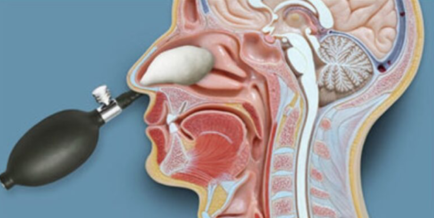Let me share something that fascinates me about the human body. Deep within our spine flows a clear, protective liquid that holds crucial secrets about our health – cerebrospinal fluid (CSF). Spinal fluid tapping, or lumbar puncture, might sound intimidating, but it’s actually one of medicine’s most valuable diagnostic tools.
Understanding Cerebrospinal Fluid: Our Body’s Hidden Guardian
Think of CSF as your nervous system’s personal bodyguard and messenger service rolled into one. This crystal-clear fluid cushions your brain and spinal cord, acting like a liquid shock absorber that protects these delicate structures from injury. But its role goes far beyond just protection.
Why Doctors Recommend Spinal Taps
When your doctor suggests a spinal tap, they’re essentially requesting access to one of your body’s most informative biological samples. Here’s what makes this procedure so valuable:
Detecting Serious Infections
A spinal tap can reveal the presence of meningitis or encephalitis before other tests show positive results. This early detection can be life-saving, especially since these infections can progress rapidly if left untreated.
Diagnosing Neurological Conditions
Multiple sclerosis, Guillain-Barré syndrome, and other neurological disorders often leave their fingerprints in the CSF. By analyzing proteins and antibodies in the fluid, doctors can identify these conditions and start appropriate treatment sooner.
Cancer Detection and Monitoring
For patients with certain cancers, particularly those affecting the brain or blood, spinal fluid analysis can reveal if cancer cells have spread to the nervous system. This information is crucial for determining the most effective treatment approach.
The Procedure: Simpler Than You Might Think
Despite its reputation, a spinal tap is typically a straightforward procedure lasting about 30 minutes. Using local anesthesia, a thin needle is carefully inserted between vertebrae in the lower back – far below where the spinal cord ends, making it safer than many realize.
Beyond Diagnosis: Therapeutic Applications
Sometimes, spinal taps aren’t just for diagnosis. They can actually help treat conditions by:
- Relieving pressure from excess CSF
- Administering medications directly into the nervous system
- Reducing symptoms of certain types of headaches
The Future of Spinal Fluid Analysis
Exciting developments in medical research suggest that CSF analysis might help diagnose conditions like Alzheimer’s disease earlier than ever before. Scientists are discovering new biomarkers in spinal fluid that could revolutionize how we detect and treat neurological diseases.
When Time Matters Most
In medical emergencies where infections or bleeding in the brain are suspected, the speed and accuracy of spinal fluid analysis can make a critical difference. While other tests might take days to process, CSF results can often provide crucial information within hours.
While the thought of a spinal tap might seem daunting, its importance in modern medicine cannot be overstated. It’s a powerful tool that helps healthcare providers make accurate diagnoses and provide better care for their patients. If your doctor recommends this procedure, you can feel confident knowing it’s backed by decades of medical research and success stories.



